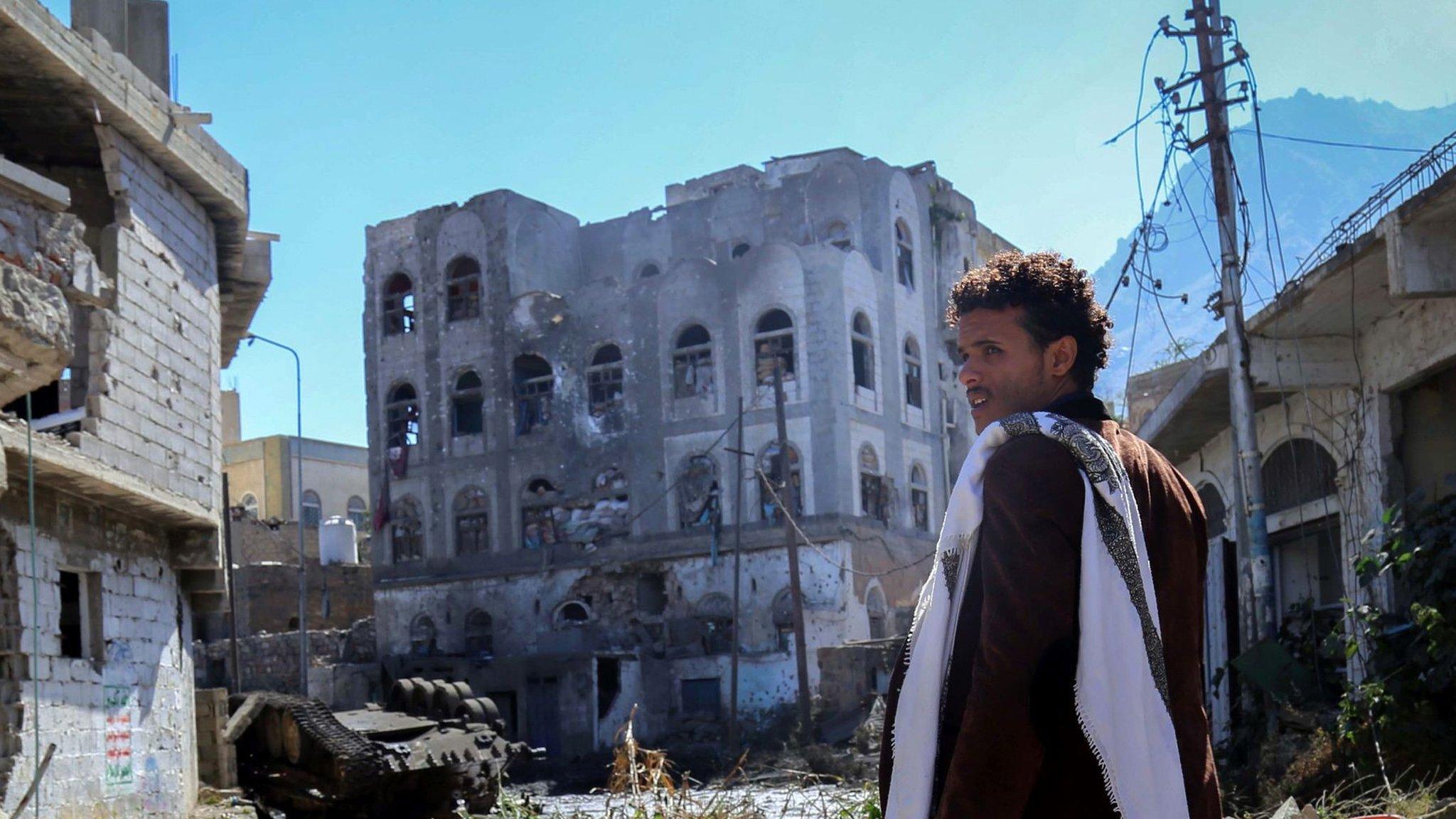Yemen faces world's worst cholera outbreak - UN
- Published
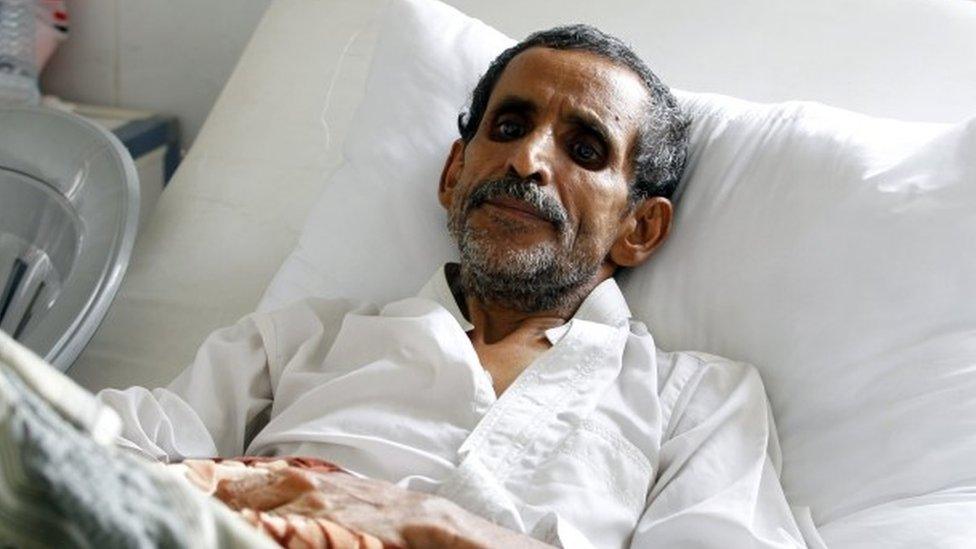
No part of Yemen has been spared from the cholera outbreak, the UN says
Yemen is now facing the worst cholera outbreak anywhere in the world, the United Nations has warned.
A statement by Unicef and the World Health Organization, external says the number of suspected cholera cases in the war-torn country has exceeded 200,000.
So far more than 1,300 people have died - one quarter of them children - with the death toll expected to rise.
The two UN agencies say they are doing everything they can to stop the outbreak from accelerating.
"We are now facing the worst cholera outbreak in the world," the statement says.
"In just two months, cholera has spread to almost every governorate of this war-torn country," it says, with an estimated 5,000 new cases every day.
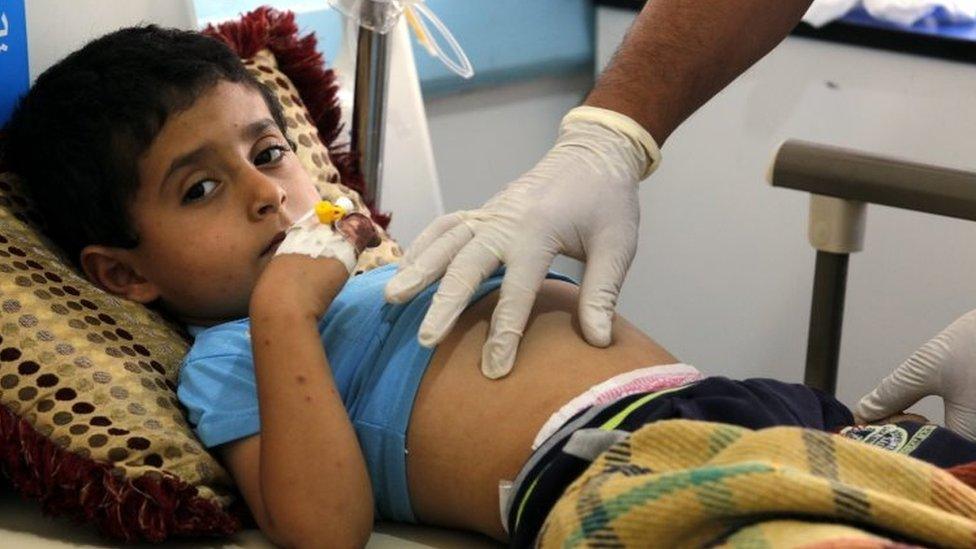
Children have been hit especially hard by the cholera outbreak
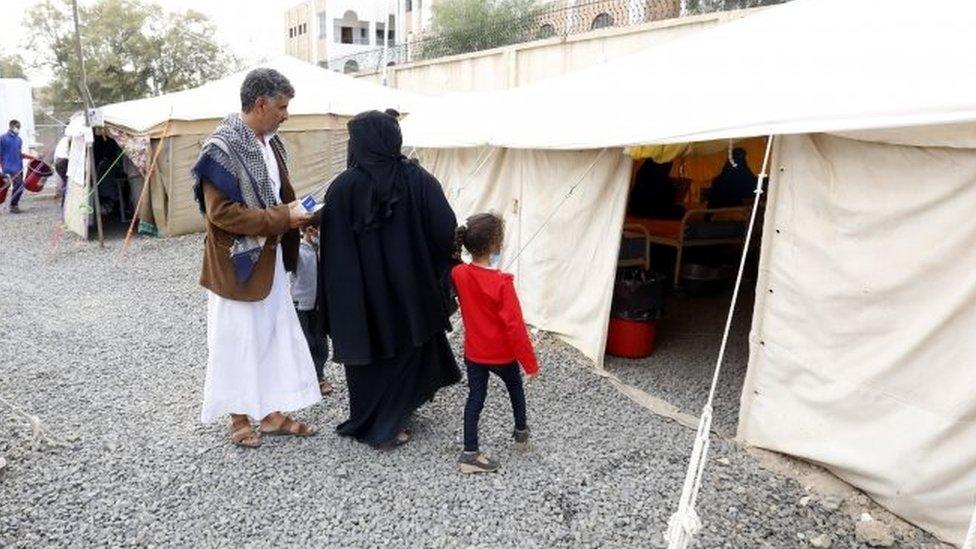
Hospitals have been overwhelmed by the number of people afflicted by cholera
Yemen's health, water and sanitation systems are collapsing after two years of war between government forces, backed by a Saudi-led coalition, and the rebel Houthi movement.
The rebels control much of the country, including the capital Sanaa.
Hospitals are overcrowded and severe food shortages have led to widespread malnutrition, making Yemenis - especially children - even more vulnerable to cholera.
The UN says it is deploying rapid-response teams to go house-to-house telling people how to protect themselves by cleaning and storing drinking water. But clean water is in short supply.
Cholera is an acute diarrhoeal infection caused by ingestion of food or water contaminated with the bacterium Vibrio cholera.
Most of those infected will have no or mild symptoms but, in severe cases, the disease can kill within hours if left untreated.
The war has left 18.8 million of Yemen's 28 million people needing humanitarian assistance and almost seven million on the brink of famine.

- Published25 June 2017
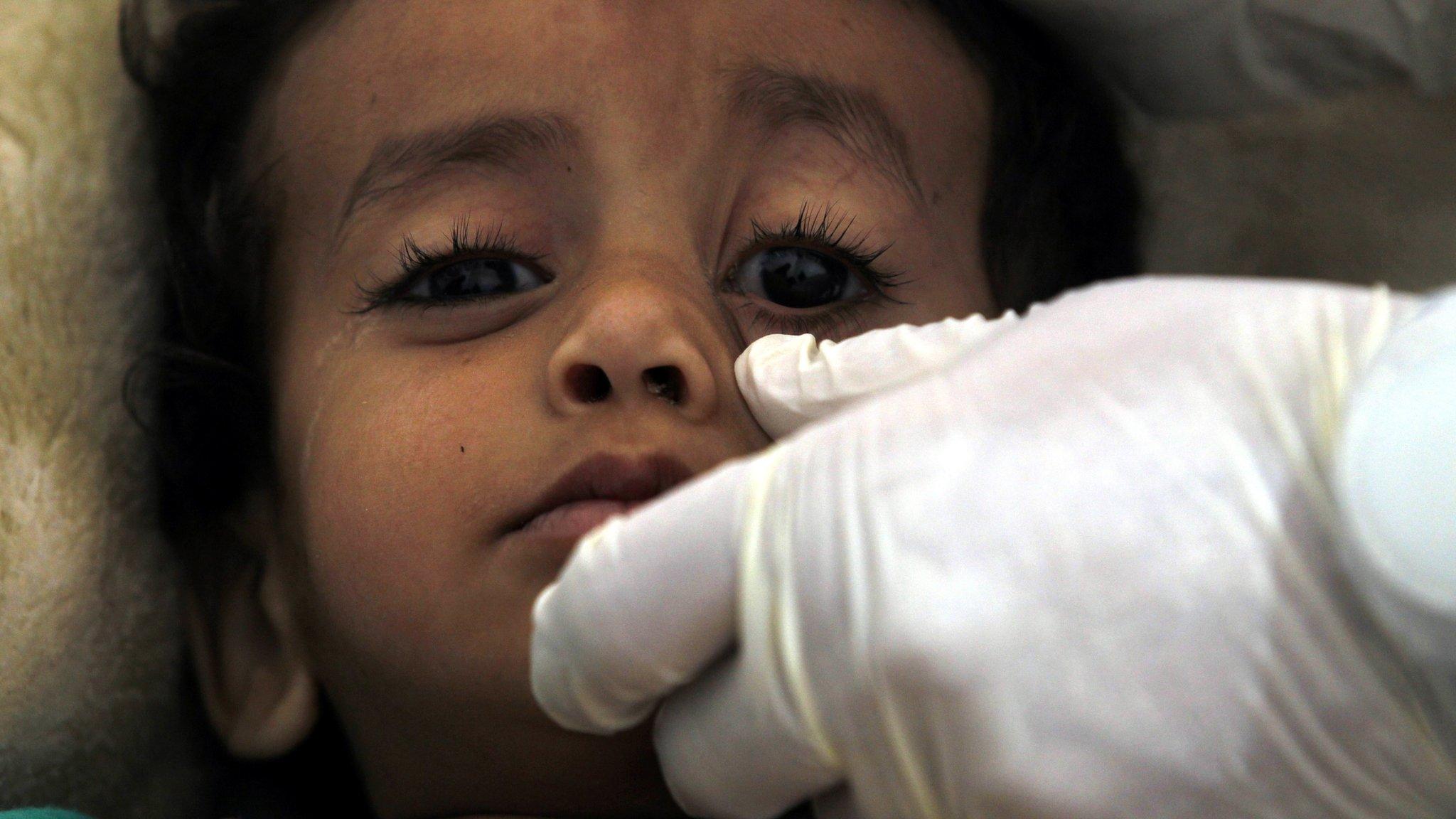
- Published28 March 2017
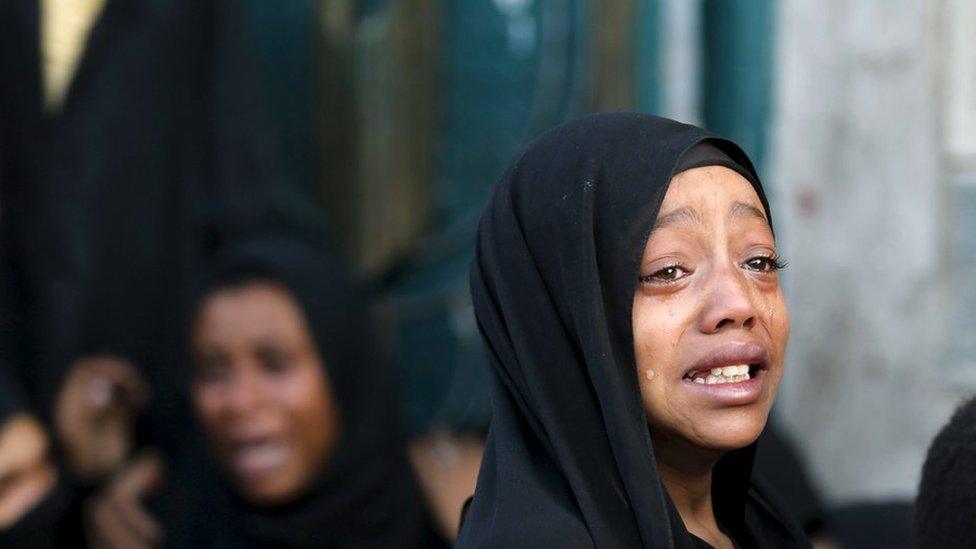
- Published14 April 2023
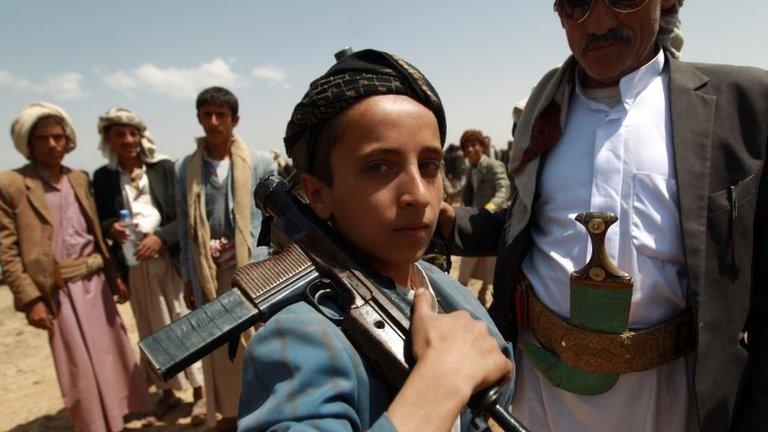
- Published31 May 2017
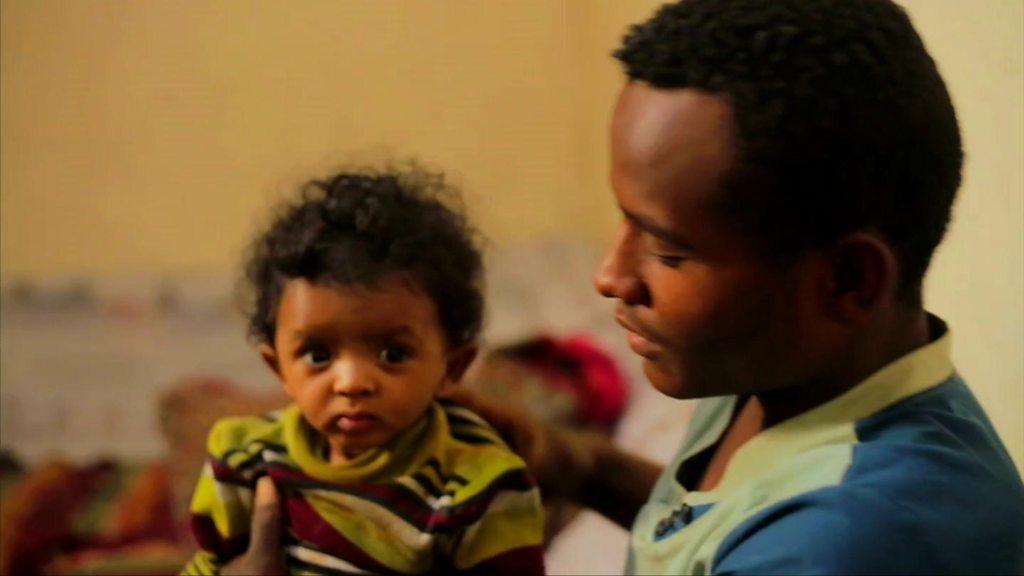
- Published1 December 2016
